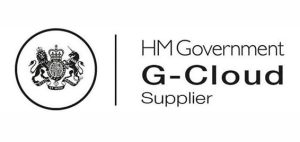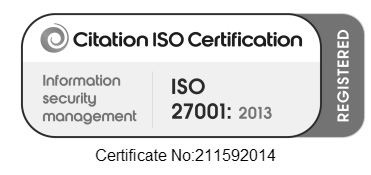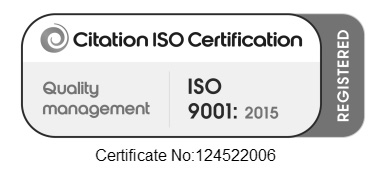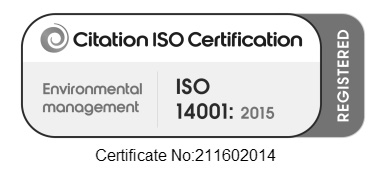The cloud is a revolutionary computing paradigm that has completely transformed the way we do business – not least by generating significant efficiencies across the board.
Taking software and data out of local premises and placing them within a secure global network of remote servers, the cloud operates as a single ecosystem to help manage and maintain digital infrastructure. Underpinned by third-party operation, it enables 24/7 access to data whilst eliminating unnecessary expenses and downtime.
The chances are, your firm is already using a handful of applications hosted on the cloud – from social media sites and email platforms, to productivity suites offered by industry giants like Google and Microsoft.
And with an endless selection of options to deploy resources – from public, community, and private, through to hybrid models – organisations of varying scopes and sizes can benefit from a complete computing overhaul.
But proceed with caution! While the benefits of using cloud-based services over outdated, in-house IT models are clear – reliability, scalability, efficiency, and security, to name just a few – it’s not necessarily right for every company.
So, to help inform your decision and formulate the most successful strategy for your organisation, here are some of the key things to consider when determining the suitability of cloud computing…
Cost.
While the cloud offers a significant range of cost efficiencies – through the elimination of redundant technology and labour requirements, lower power costs, and reduced carbon footprint – it’s important to evaluate the price of switching infrastructure.
Capital expenditure (CapEx) and operational expenditure (OpEx) should be key considerations when weighing up your options – as the financial differences will influence the option you choose.
For most businesses, a pay-as-you-go OpEx plan is the obvious choice, helping to keep financial forecasts stable and predictable, while offering the flexibility to cancel or modify a plan at any given moment, and freeing up internal resources to focus on driving value for your organisation.
However, if companies prefer to take control of cloud services – including costs and maintenance – and generate long-term revenue by improving production facilities and boosting operational efficiency, a private cloud might be a more suitable option.
Security and compliance.
With the increasing sophistication of cyber-attacks, maintaining a strong cloud security posture is key if your organisation is to house highly sensitive business information and intellectual property online – especially if your industry is highly regulated. Luckily, most private and hybrid infrastructures support compliance, but scrutinising this area to ensure your company’s needs are met is crucial.
The off-site nature of cloud storage, in which data is hosted in a separate location from your business, automatically reduces some risks – including the removal of USB sticks, or forwarding of login details – but there are some other key elements to look out for in your security strategy. These include:
- Encryption – a way of scrambling data so that only authorised parties can understand and access the information, unless they discover the decryption key.
- Security - whether using on premise firewalls, virtual cloud firewalls, or full blown managed SD WAN, you need to have a holistic approach to security across the entire network – especially if that network is contained within a hybrid-cloud environment. Whether using on premise, public cloud or private cloud, security is a major consideration and needs to be designed thoroughly.
- Identity and access management – products which manage user authorisation based on who they are and what they do, to help prevent account takeover and insider attacks.
Collaboration and flexibility.
Cloud-hosted platforms enable users a greater degree of flexibility, by allowing them to access files anytime, anywhere. It doesn’t matter if your teams are working remotely or in the office, on a laptop or a tablet – as long as each device is connected to the internet, important files can be accessed and updated conveniently.
But that’s not all, cloud-based software suites like Office 365 also unlock contemporary ways of working by empowering creative collaboration. With the ability to share documents both internally and externally, co-author in real time, and attend meetings virtually, cloud computing not only creates a shared understanding across your organisation, but crucially bolsters the team dynamic and encourages fresh ideas into fruition.
But don’t just innovate for innovations’ sake – if your teams are successfully collaborating without needing cloud intervention, don’t feel like you have to make a change.
While the technology industry has become a burgeoning powerhouse in recent years – offering an ever-increasing myriad of benefits to businesses from SMEs through to corporate enterprises – there can often be a mounting pressure to conform.
And while growth often brings an unavoidable need to adapt in some form or another, change can be marginally different from one organisation to the next.
To delve deeper into the topic of cloud with one of our experts, please don’t hesitate to get in touch – let’s discuss your options, together.
Central's cloud-to-cloud backup and point-in-time recovery solution allows firms to restore lost data quickly — minimising downtime and ensuring business continuity.
Microsoft 365’s recycle bin is NOT a backup solution. Don’t let limited retention policies put your data and compliance at risk. Get comprehensive backup and recovery of your Microsoft Exchange Online, SharePoint, OneDrive, Groups and Teams data with our cloud-to-cloud backup solution.
Although Microsoft will do their best to manage your data effectively, you ultimately remain responsible for the protection, backup and compliance of that data – and this is where Central can help.
We provide critical multi-layer security, archiving and backup for Microsoft 365 environments, allowing organisations to prepare and migrate safely, efficiently and economically.
With complete protection of email, data and cloud infrastructures, our clients have the peace of mind that their business and users are protected from dangerous cyberattacks, natural disasters and simple human error that can cause loss of business-critical data at any time.
Our cloud-to-cloud backup and point-in-time recovery solution enables you to restore lost data quickly and easily, minimising downtime and ensuring business continuity. It provides fast, reliable recovery of Exchange Online, OneDrive and SharePoint Online data in the event of malicious or accidental deletion. It also includes unlimited storage and retention, providing a predictable costing model to meet business requirements as your organisation grows.
Combining three proven cloud-based solutions that enhance Microsoft 365 deployments, we can swiftly and seamlessly add full-spectrum email security, compliance archiving and backup to any Microsoft 365 installation:
Email threat protection
Today’s IT professionals need an easy-to-manage and comprehensive email security solution that protects against phishing, malware, and ransomware. Along with multi-layer email security, our service provides email continuity and data loss prevention.
Advanced threat protection is also included which sandboxes suspicious email attachments and scans them for malware. Link protection redirects suspicious URLs, so malware is never inadvertently downloaded by recipients.
Archiving for Compliance
Our archiving service integrates with Microsoft 365 to create a cloud-based, indexed archive allowing granular retention policies, extensive search, auditing/permissions, legal hold and export helping to facilitate eDiscovery and retention.
Litigation holds preserve email from being tampered with until the litigation hold expires or is removed. Native and mobile apps provide intuitive interfaces that simplify search to ensure messages are found easily, even when email services are unavailable.
Backup and Recovery
While Microsoft 365 is a great option for companies wanting highly scalable and redundant architectures to mitigate natural and mechanical failures, there are inherent risks associated with cloud-hosted data, including human-caused data loss.
Our cloud-to-cloud backup for Microsoft 365 solution protects Exchange Online mailboxes, SharePoint Online, as well as OneDrive files and folders, ensuring recovery in the event of accidental or malicious deletion.





